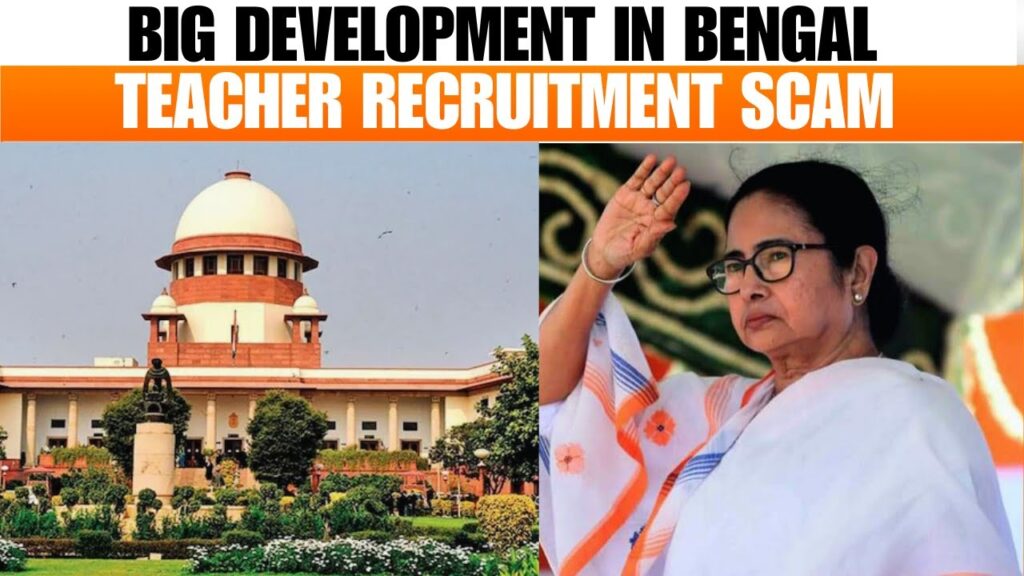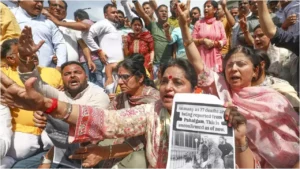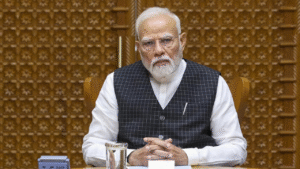Supreme Court Ruling on Bengal School Jobs A Landmark Decision for Education and Employment

In a landmark ruling on April 4, 2025, the Supreme Court of India delivered a verdict on the controversial issue of teacher recruitment in West Bengal, specifically regarding the state government’s hiring practices for school jobs. The ruling has sent ripples through the state’s education sector, addressing longstanding concerns over transparency, fairness, and legal compliance in the recruitment process for government school teaching positions.
The case, which had been under judicial review for several years, centered around the recruitment of teachers for various government-aided and state-run schools in West Bengal. It involved the question of whether the recruitment process had adhered to constitutional principles, statutory requirements, and whether proper procedures were followed in hiring teachers in the state’s education system.
Background of the Case:
The dispute dates back to 2014, when the West Bengal government began recruiting teachers through a process known as the Teachers’ Eligibility Test (TET). While the TET process was meant to be transparent and merit-based, several allegations emerged over time. Candidates and educational bodies raised concerns about nepotism, favoritism, and irregularities in the recruitment process, accusing the state of bypassing merit and favoring candidates with political connections or who had paid bribes to secure jobs.
The issue gained momentum in 2021 when a writ petition was filed in the Supreme Court by a group of affected teachers, job aspirants, and civil society organizations. The petitioners argued that the recruitment process was marred by corruption and irregularities, which violated the fundamental principles of equality, fairness, and transparency enshrined in the Indian Constitution. The petitioners demanded a thorough review and an overhaul of the recruitment system to ensure that jobs were given on the basis of merit alone.
Supreme Court’s Judgment:
In its ruling, the Supreme Court of India recognized the significant role that teachers play in shaping the future of the nation and affirmed the importance of maintaining integrity and transparency in the recruitment process. The Court stated that the West Bengal government’s recruitment practices were indeed flawed, violating basic principles of fair play and public trust.
The court’s key findings were as follows:
Violation of Recruitment Norms: The Supreme Court noted that the recruitment process had not followed the proper statutory procedures as prescribed by the National Council for Teacher Education (NCTE) and Rashtriya Madhyamik Shiksha Abhiyan (RMSA). The court observed that the West Bengal government had conducted the TET in an inconsistent manner, and candidates were hired without adhering to the prescribed recruitment framework.
Corruption and Lack of Transparency: The Court acknowledged the widespread allegations of corruption and favoritism in the recruitment process. Evidence of candidates being hired based on political influence, bribery, or personal connections instead of merit was considered a serious violation of Article 14 (equality before the law) and Article 16 (equality of opportunity in public employment) of the Constitution of India.
Irregularities in TET Scores: The Court also criticized the state’s handling of TET scores. Many candidates were given jobs despite low or inconsistent exam scores, and there were discrepancies in the way scores were awarded and shared. In several instances, the Court found that candidates who did not meet the minimum required qualifications were offered teaching positions, thereby undermining the credibility of the examination system.
Order for Reassessment and Re-recruitment: In response to these findings, the Supreme Court ordered the reassessment of the entire recruitment process for teachers in the state of West Bengal. It directed the State School Education Department to form an independent, transparent commission to re-evaluate the appointments made in the last five years.
Additionally, the Court instructed that all illegally appointed teachers should be removed from their positions. The government was also ordered to re-advertise vacancies and ensure that only meritorious candidates were considered for appointments. To maintain fairness, the Court mandated that a third-party monitoring mechanism be set up to oversee the recruitment process and ensure compliance with the new standards.
Compensation for Affected Candidates: In another crucial aspect of the ruling, the Court directed the West Bengal government to provide compensation to the affected candidates who were wronged by the corrupt practices. This would include those who had prepared for and appeared in the TET but were unjustly excluded or disqualified due to irregularities in the process.
Implications of the Verdict:
The Supreme Court’s ruling is being hailed as a landmark decision that will have a significant impact not only on West Bengal but also on other states across the country, where similar issues related to recruitment in public sector jobs, especially in education, have been raised. The judgment reinforces the need for a fair, transparent, and merit-based recruitment process in the public sector, especially for crucial positions such as teachers, who directly impact the educational outcomes of students.
The verdict also sends a strong message to the political leadership in various states, urging them to prioritize meritocracy over political favoritism and adopt reforms that foster transparency in recruitment. It also calls for the establishment of mechanisms to prevent corruption and ensure that public sector jobs are awarded based on fairness and competence, rather than connections or bribes.
The Supreme Court’s decision on Bengal school jobs marks a pivotal moment in the fight against corruption in public sector recruitment. By holding the West Bengal government accountable for its flawed hiring practices, the Court has set a precedent for future recruitment processes across India. It also emphasizes the need for reforms that promote transparency, fairness, and equal opportunities in education and public employment. This judgment is not only a victory for those seeking justice but also for the integrity of India’s educational system and public institutions.



